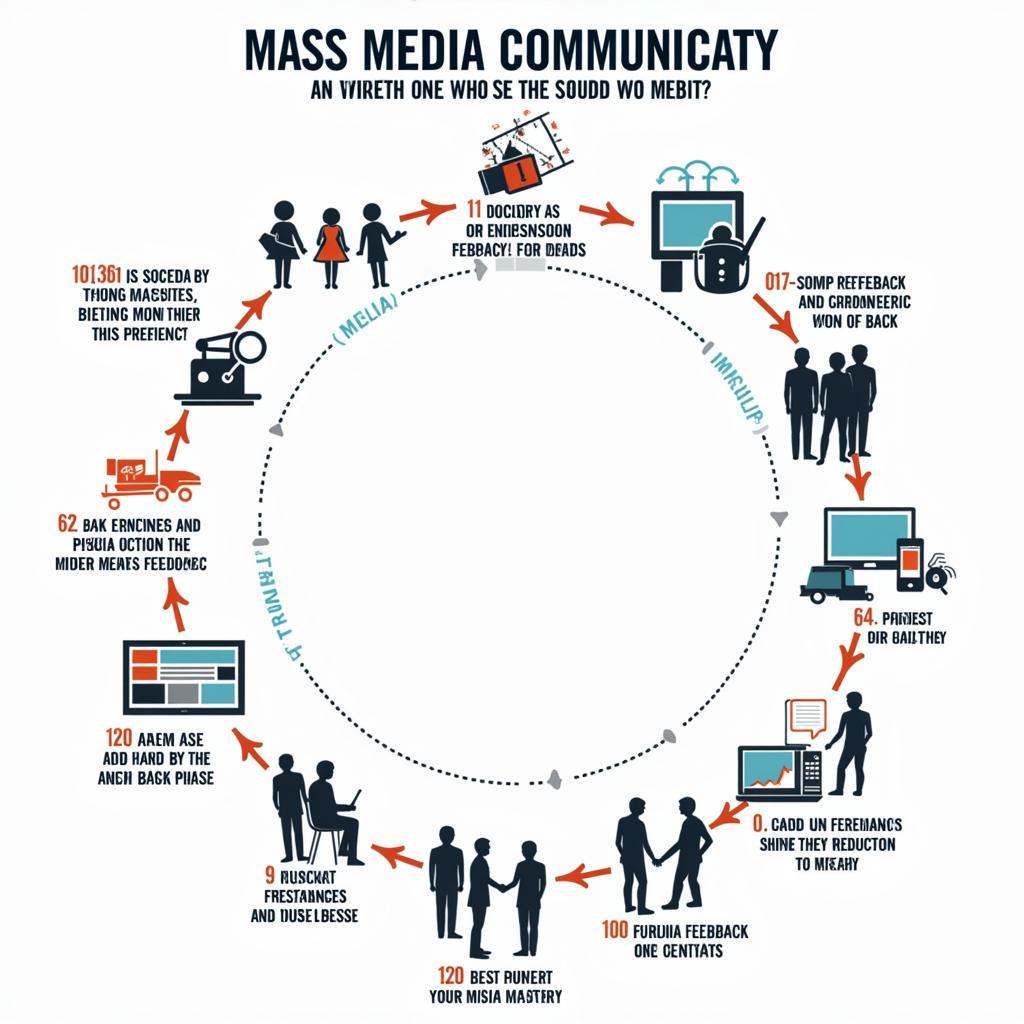Mass Communication And Society are inextricably linked, shaping each other in profound ways. In today’s interconnected world, understanding this relationship is more crucial than ever. From the news we consume to the social media platforms we engage with, mass communication influences our perceptions, beliefs, and behaviors, while simultaneously reflecting the evolving values and dynamics of our society.
How Mass Communication Shapes Society
Mass communication plays a powerful role in shaping societal norms, values, and beliefs. Media portrayals can influence our understanding of different cultures, social issues, and even our own identities. For example, the way a particular community is represented in the media can shape public perception and contribute to either positive or negative stereotypes. The mass neuropsychological society explores these complex interactions.
- Shaping Public Opinion: Mass media outlets, including television, newspapers, and online platforms, play a significant role in shaping public opinion on important social and political issues. The way information is presented, framed, and disseminated can influence how people perceive events and form their opinions.
- Cultural Transmission: Mass communication serves as a powerful tool for transmitting cultural values and beliefs. Through movies, music, and television shows, we are exposed to different cultures and lifestyles, which can broaden our understanding of the world.
- Socialization: From a young age, we are exposed to media messages that shape our understanding of social roles, expectations, and behaviors. These messages can influence how we interact with others, form relationships, and navigate social situations.
The Influence of Society on Mass Communication
Just as mass communication shapes society, societal values and trends influence the content and direction of media messages. The demand for certain types of content, public feedback, and evolving social norms all play a role in shaping what we see and hear in the media.
- Reflecting Societal Values: Mass media often reflects the prevailing values, beliefs, and concerns of a society. The content produced and disseminated through various media channels often mirrors the social and cultural climate of the time.
- Responding to Audience Demand: Media organizations are constantly striving to cater to audience preferences and demands. The type of content that gains popularity and generates engagement often reflects the interests and values of the target audience.
- Adapting to Technological Advancements: Society’s embrace of new technologies has significantly impacted the landscape of mass communication. The rise of the internet and social media has created new platforms for information dissemination and has changed the way people consume and interact with media. Think of how articles like save the soul society ichigo reflect this change.
 Society Shaping Mass Media
Society Shaping Mass Media
Mass Communication and Society in the Digital Age
The digital age has revolutionized mass communication, creating new opportunities and challenges. The proliferation of social media platforms, online news sources, and user-generated content has democratized information sharing and has empowered individuals to become content creators and distributors. This democratization raises critical questions about information accuracy, credibility, and the potential for misinformation and manipulation. How do we ensure responsible communication in this new era? Mass comm and society are now more deeply intertwined than ever before.
How Has Social Media Impacted Mass Communication?
Social media has transformed how we consume and interact with information. It allows for instant communication and widespread dissemination of news and ideas, but also poses challenges in terms of verifying information accuracy and combating the spread of misinformation. How do articles like science has had no negative impacts on society. address these complexities? And how do we navigate the ethical considerations raised by explain how advances in scientific knowledge have influenced society.?
In conclusion, mass communication and society are engaged in a continuous dance of influence. Understanding the complex interplay between these two forces is essential for navigating the challenges and opportunities of the digital age and for fostering a more informed, engaged, and peaceful global community.
FAQ:
- What is the role of mass communication in shaping public opinion?
- How does society influence the content produced by mass media?
- What are the ethical implications of mass communication in the digital age?
- How can we promote responsible communication in the age of social media?
- What is the impact of technological advancements on mass communication?
- How does mass communication contribute to cultural transmission?
- What are the challenges of ensuring information accuracy in the digital age?
For further assistance, please contact us at Phone Number: 02043854663, Email: [email protected] or visit us at Zone 34, Bac Giang, 260000, Vietnam. We have a 24/7 customer support team.